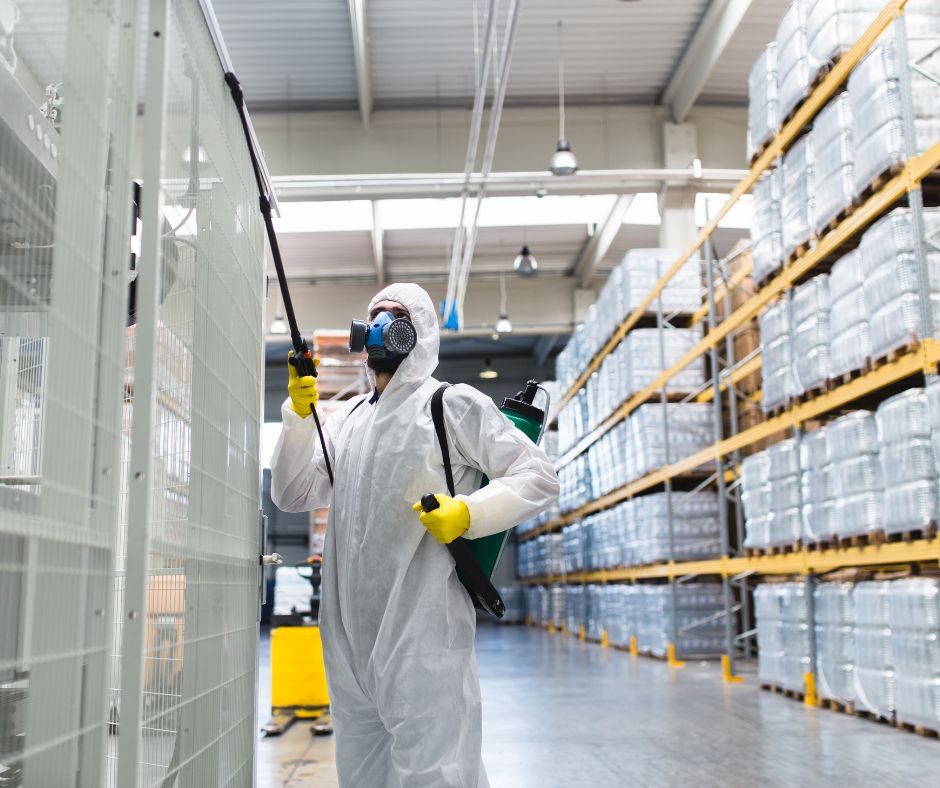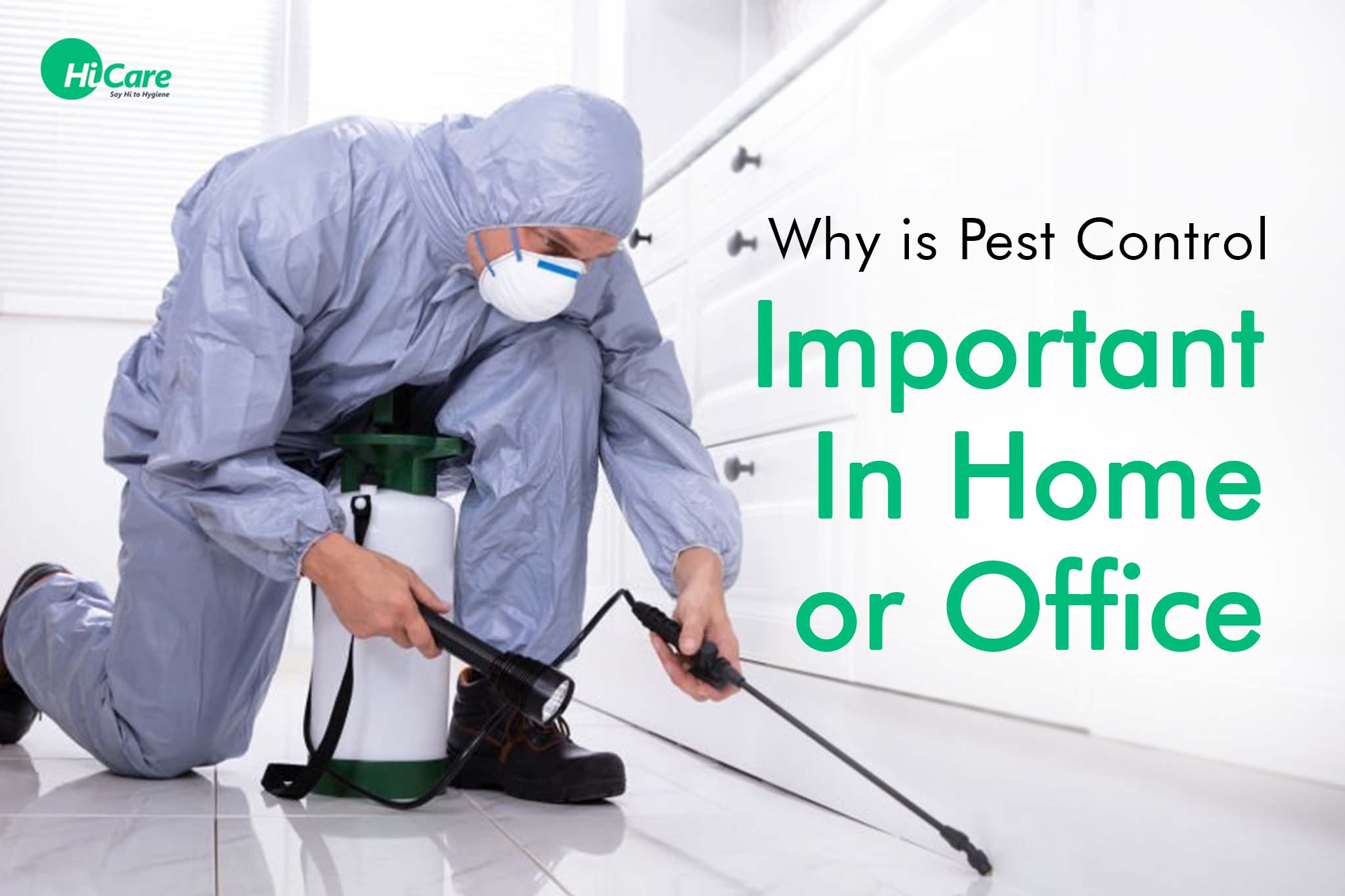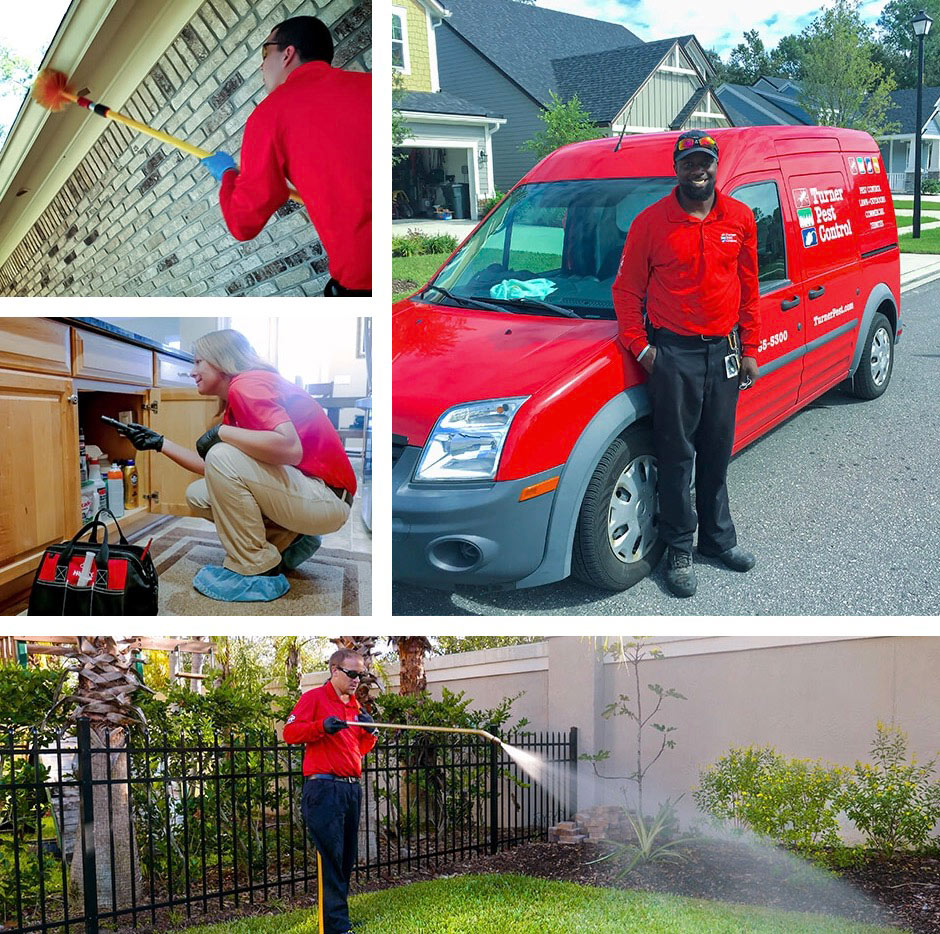Full-service Pest Control Services to Protect Your Business in Port Charlotte
Wiki Article
Find Out About the most recent Developments in Parasite Control and How to Execute Effective Therapy Solutions
In current years, the field of bug control has observed significant improvements, driven by the demand for effective and sustainable therapy options. Cutting-edge approaches such as Integrated Parasite Administration (IPM) integrate eco-friendly techniques with cutting-edge modern technology, enhancing both effectiveness and ecological responsibility.Eco-Friendly Parasite Control Options
Over the last few years, the need for green pest control options has risen as homeowners and companies alike look for sustainable choices to conventional chemical treatments. This change is driven by growing ecological recognition and a wish to lessen the wellness dangers related to artificial pesticides.

Eco-friendly insect control approaches encompass a variety of strategies that prioritize the use of all-natural substances and methods. Integrated Insect Management (IPM) is one such technique, combining organic, social, and mechanical methods to manage insect populaces while decreasing reliance on chemicals (Wildlife removal services). This alternative technique highlights prevention with environment manipulation and the intro of all-natural predators, therefore cultivating a well balanced ecological community
Another popular option is making use of agricultural pesticides originated from plants, which have a tendency to be less dangerous to non-target microorganisms. Products like neem oil and diatomaceous planet have actually obtained grip for their effectiveness in regulating parasites while positioning very little dangers to human health and the atmosphere.
Additionally, exemption techniques, such as securing access points and preserving tidiness, play an important function in environment-friendly insect management. By adopting these lasting practices, services and people can properly handle bugs while advertising a healthier planet for future generations.
Smart Technology in Insect Administration
Innovation is improving the landscape of parasite monitoring, with wise technology arising as an essential force in enhancing efficiency and effectiveness - Wildlife removal services. The assimilation of Internet of Things (IoT) gadgets, expert system (AI), and data analytics is transforming how parasite control experts approach problems
Smart catches geared up with sensors can identify pest task in real-time, sending prompt alerts to drivers. This enables timely feedbacks, minimizing damages and minimizing the need for comprehensive therapies. Furthermore, AI algorithms examine historical information to forecast insect actions, allowing proactive treatments based upon environmental problems and infestation patterns.
Drones and automated automobiles are likewise playing a considerable duty in bug monitoring, offering airborne evaluations of huge areas, determining hotspots, and even dispersing targeted treatments. These innovations not just improve procedures but likewise enhance safety and security by restricting human direct exposure to possibly damaging chemicals.
Moreover, mobile applications equip consumers to check parasite task and gain access to specialist advice, fostering a collaborative strategy to pest monitoring. In general, the adoption of clever innovation is setting a new requirement in bug control, emphasizing data-driven choices and lasting practices that inevitably benefit both specialists and homeowners alike.
Integrated Parasite Management Techniques
Integrated Insect Administration (IPM) uses an all natural approach to pest control, combining numerous approaches to effectively manage insect populations while lessening dangers to human health and wellness and the environment. IPM revolves around recognizing the pest life process, their all-natural adversaries, and the Pest control in charlotte county ecological community in which they grow.One of the essential elements of IPM is keeping an eye on pest populaces with routine assessments and data collection. This permits the recognition of insect thresholds, figuring out when treatment is needed. Cultural practices, such as crop cleanliness, habitat, and rotation control, are important in decreasing insect prevalence and advertising plant health and wellness.
Mechanical controls, consisting of barriers and traps, are also important in IPM. These techniques can physically remove or prevent parasites without the use of chemicals. When essential, the sensible application of chemical controls is used, concentrating on targeted therapies that lessen environmental influence.
Education and collaboration among stakeholders, including farmers, parasite control experts, and the area, are vital for the successful execution of IPM approaches. By prioritizing sustainable techniques, IPM not only addresses pest concerns however additionally fosters a healthier environment.
Biological Control Methods
Countless biological control techniques are significantly recognized for their effectiveness in taking care of parasite populaces while promoting eco-friendly balance. These approaches harness natural predators, parasites, and microorganisms to lower pest numbers without relying upon artificial chemicals. The introduction of ladybugs can successfully regulate aphid populations, while nematodes target soil-dwelling bug larvae.Additionally, using microbial pesticides, such as Bacillus thuringiensis (Bt), provides an eco-friendly choice for taking care of caterpillar bugs. These items especially target pest types, minimizing damage to beneficial bugs and pollinators. Additionally, preservation organic control highlights improving habitats for natural adversaries, such as birds and advantageous bugs, thus motivating their visibility in agricultural systems.
Study continues to reveal innovative strategies within this area, such as using scents to interfere with pest mating patterns or the growth of biocontrol representatives with hereditary engineering. Carrying out these approaches can result in sustainable bug administration techniques that alleviate the reliance on chemical treatments, eventually fostering much healthier environments. As recognition of these strategies expands, they are ending up being essential components of incorporated insect monitoring (IPM) approaches, supplying an equilibrium between reliable insect control and ecological stewardship.
DIY Parasite Control Solutions
As house owners look for efficient ways to take on insect concerns, DIY pest control solutions have actually gained appeal for their accessibility and cost-effectiveness. These techniques encourage individuals to attend to problems making use of readily offered materials and strategies, typically without the demand for expert intervention.
Additionally, preserving appropriate hygiene and normal inspections can avoid bug entry and nesting (Wildlife removal services). Easy techniques, such as sealing fractures, getting rid of food resources, and decluttering, can significantly decrease insect populations. Catches, both homemade and readily readily available, can also offer effective remedies for monitoring and controlling specific pests like rodents or bugs

Conclusion
The assimilation of eco-friendly pest control choices, smart technology, and innovative administration strategies offers a thorough strategy to efficient insect management. By accepting Integrated Parasite Management (IPM) and using organic control approaches, alongside do it yourself services, sustainable and accountable insect control can be accomplished. These advancements not just boost the effectiveness of bug management methods however additionally contribute to a much healthier atmosphere. Carrying out these strategies cultivates a well balanced community while successfully resolving pest populations.Eco-friendly insect control approaches incorporate a range of strategies that prioritize the usage of natural materials and practices. Integrated Bug Monitoring (IPM) is one such strategy, incorporating organic, cultural, and mechanical techniques to handle insect populations while decreasing reliance on chemicals. As recognition of these methods expands, they are coming to be essential parts of integrated insect administration (IPM) techniques, providing a balance between efficient insect control and environmental stewardship.
The integration of eco-friendly bug control options, smart innovation, and cutting-edge management methods presents a detailed method to effective bug monitoring. By welcoming Integrated Parasite Administration (IPM) and using organic control techniques, alongside Do it yourself options, sustainable and liable insect control can be attained.
Report this wiki page